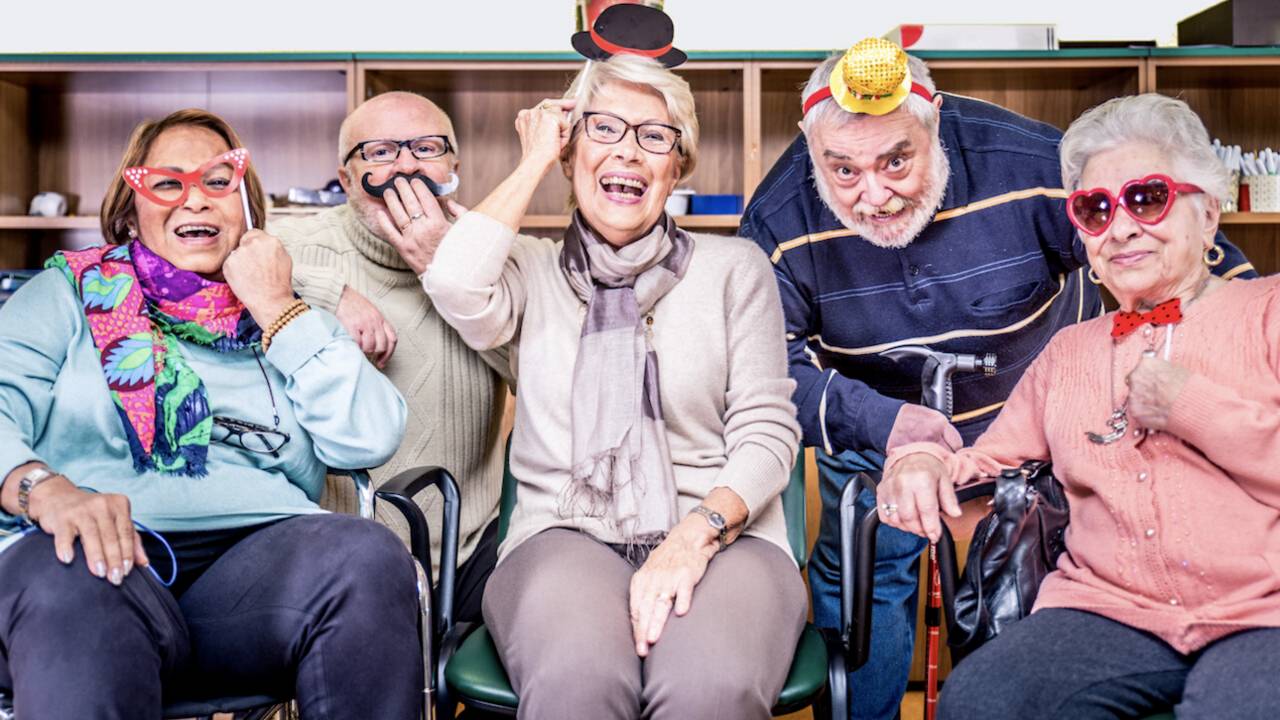Did you know that people over 65 make up the fastest growing age group in the United States?
In fact, every day between 2011 and 2030, 10,000 people in the US will turn 65. Every DAY for 19 years, 10,000 people turn 65! Think about this for a minute.
The other day, my neighbor and I were talking, he told me, “today is my 65th birthday!” And my first thought was “wow, there are 9,999 other people celebrating their 65th birthday today, too!” So, to the 10,000 people turning 65 today, I say, “Happy Birthday! I hope this is the best year yet!”
Most people 65 and older will tell you that they don’t feel old. The baby boom generation (people born between 1946-1964) are on average the healthiest and most active generation to begin reaching older adulthood. So, it makes sense that they are not happy with being perceived as “old”. On the contrary, this generation is determined to change the way older adults are seen and treated. It is important for us to think about and discuss how we as a society understand the dynamics, needs, and “psychology of aging” in our modern-day society.
What is the “Psychology of Aging”?
-
Psychology is the study of the mind and behavior. Psychology is unique in that it is both a service-oriented health care profession and a field of scientific research. A Psychologist, like myself, can have many roles, including researcher, educator, licensed health care provider, and policy advocate. Gero-Psychology is a field within psychology devoted to the study of aging. Gero-Psychologists, provide clinical services for older adults and their families, expand knowledge of the normal aging process, address problems that commonly arise as people age, and help older adults and their families overcome problems, enhance well-being, and help older adults achieve maximum potential during later life.
-
Aging is a complex process described by many different theories, but basically, aging refers to the process of growing older. While this process includes increased risk for physiological vulnerability, decline, and loss, it has positive attributes as well. Older adults tend to be happier and wiser than their middle-aged counterparts. They tend to be better at seeing multiple points of view and perspectives. And, they tend to have a healthy sense of pride related to their accomplishments, as well as a sense of security in who they are.
Now let’s put it all together: the Psychology of aging is essentially the study of human thoughts, feelings behaviors, and relationships in the context of growing older.
The Podcast Name That I Rejected!
In naming this podcast, I thought about using the term, Silver Tsunami. I thought this would be a funny, descriptive, and metaphorical way to discuss the notion of baby boomers flooding society, but as I thought about this further, I discovered that the term Silver Tsunami might actually cause more harm than good and reinforce ageism in society.
Here’s why!
Tsunamis are frightening and destructive- attributes not necessarily shared by the aging population. When we think of a tsunami, we think of a massive body of water devouring and destroying everything in its path. As a result, we instinctively need to take cover. This conjured up images in my mind of Paul Revere on his horse riding through the streets yelling, “the Aged are Coming… the aged are coming”.
Metaphors shape the way we think and thinking shapes the way we behave. Imagine if I told you, the aging population was scary and something you need to guard against. How might you react? “Oh crap, I need to call my plastic surgeon and get (insert body part) lifted right away.”
Now, what if I changed the narrative a little and said, imagine living in a world where we have advanced medicine, more resources, and as a result, people are living longer and healthier than ever before. What can we learn and gain as a society from all of this health and wisdom? You might stop and think, wow, there are people out there who know more and have more wisdom about life than I do. You might think, “how can I embrace this and benefit from it, rather than protect myself against it?”
What Qualifies Me To Talk About the Psychology of Aging?
Now for a little introduction! I’m so glad you’re here.
I’m Dr. Regina Koepp, I’m a Stanford-trained clinical gerosychologist and I specialize with older adults and families. I’m founder and director of the Center for Mental Health and Aging. I also served as an Assistant Professor for many years at Emory University Department of Psychiatry, and as a clinical geropsychologist at in an outpatient mental health clinic for older adults at the Atlanta VA Health Care System.
For several years, I was a Professor of Gerontology (that’s a fancy word for the study of older adults and aging), where I taught a course in the Psychology of Aging for a graduate Gerontology program.
The Goal of the Psychology of Aging Podcast
The Psychology of Aging is for older adults AND the people who care about older adults. My hope is that by creating open dialogues and providing public education, we can help to build bridges between generations, broaden our understanding of the aging process, dispel myths, challenge stereotypes, and promote health and well-being for older adults and their families.
Each week I will address common issues related to aging, which include the aging process, relationships, intimacy and sex, driving, working, retirement, health and wellness, medical illness, dementia, caregiving, end of life, you name it.
Like I say in my therapy groups:
“No topic is off topic, we just have to have a healthy way of talking about it.”
So, instead of protecting yourself against aging, or heeding the Paul Revere-type warnings that the “aged are coming”, sit back, settle in, and embrace the experience. You’re in for the journey of a lifetime!



